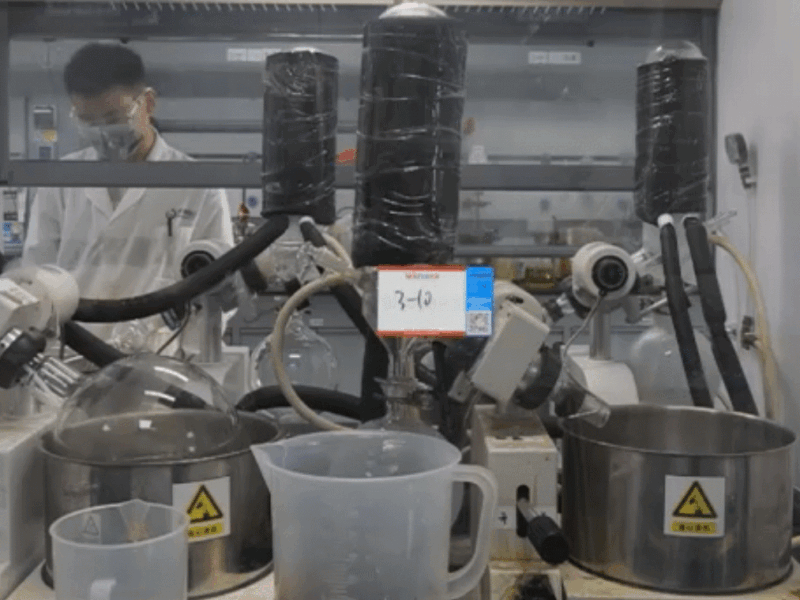
Introduction
The compound ITF-2357, also known as givinostat, is a potent, selective HDACi with established anti-inflammatory and anti-cancer properties. CAS number 497833-27-9 and extensively studied for its therapeutic applications in the oncology, hematology, and rare disease spaces.
The mechanisms of action, pharmacological profile, clinical applications and future prospects of Givinostat are studied in this article.
Chemical Pharmacological Profile
A hydroxamate based HDAC inhibitor, Givinostat, is mentioned. HDAC enzymes are critical for regulating gene expression through the process, or epigenetics, of modifications. Givinostat inhibits these enzymes and modulates chromatin structure and transcriptional gene activity, inducing tumor suppressive genes and such pro-inflammatory cytokines.

Key chemical properties of Givinostat include:
– Molecular Formula : C20H20N2O3
– Molecular Weight : 336.39 g/mol
– Mechanism of Action : Specific for Class I and II HDAC enzymes.
The dual function of Givinostat makes it particularly suited for conditions in which aberrant epigenetic regulation and inflammation is present.

Mechanism of Action
Givinostat inhibits HDAC enzyme activity and results in non histone protein and histone acetylation. This results in the following effects:
1. Apoptosis Induction : The same drug promotes cell cycle arrest and programmed cell death in cancerous cells.
2. Anti-inflammatory Effects : It suppresses production of pro inflammatory cytokines such as IL-1β, IL-6 and TNF-α.
3. Immunomodulation : It increases the function of regulatory T cells that keep immune homeostasis.
Collectively, these mechanisms constitute the basis for the application of these mechanisms in diseases including cancers, inflammatory conditions and genetic disorders.
Therapeutic Applications
Givinostat has shown promise in several therapeutic areas, including:
1. Hematological Malignancies
Givinostat is being studied in people with hematologic cancers such as multiple myeloma or leukemia. It shows significant anti tumor activity by inducing apoptosis and cell cycle arrest. Encouraging early-phase clinical trial results have led to attempts at reducing tumor burden and improving patients outcomes.

2. Muscular Dystrophies
Duchenne Muscular Dystrophy (DMD) is one of the most notabled applications of Givinostat. It has been shown to prevent muscle inflammation and fibrosis and to maintain muscle function in preclinical and clinical studies. In addition, the drug is able to modulate inflammatory responses vital to the progression of DMD.
3. Polycythemia Vera
Givinostat has been marketed in Europe for the treatment of polycythemia vera, a myeloproliferative disorder, to reduce spleen size and improve symptoms including fatigue and pruritus. For this condition its effects on erythropoiesis and cytokine modulation are particularly beneficial.

4. Other Inflammatory Diseases including Rheumatoid Arthritis
Givinostat could be used as an anti-inflammatory agent for treating autoimmune and inflammatory diseases. Preclinically, it inhibits cytokine overproduction and reduces joint inflammation in models of preclinical arthritis.
Clinical development
Givinostat is currently in various stages of clinical trials, primarily for the following conditions:
1. Phase II/III for Duchenne Muscular Dystrophy : Researchers found improved muscle function and decreased fibrosis markers.
2. Phase II for Polycythemia Vera : Hematological and symptomatic improvements is shown.
3. Phase I/II for Cancer : Hematological malignancies and solid tumors.
It has been well documented as having a completely safe and tolerable profile with common side effects being mild gastrointestinal symptoms and fatigue.
Advantages of Givinostat
– Broad Spectrum of Action : In both the inflammatory and oncological settings.
– Selective HDAC Inhibition : Much less off target actions than other HDAC inhibitors.
– Oral Administration : It is patient friendly and patient compliant.
Challenges and Limitations
While Givinostat has shown promise, certain challenges remain:
1. Side Effects : Mild adverse effects of long term use may include gastrointestinal discomfort and fatigue.
2. Resistance Development : Like with many targeted therapies, resistance mechanisms are a possibility over time.
3. Cost of Development : Epigenetic drugs are often highly clinically evaluated, which raises development costs.
Future Prospects
The development of Givinostat for other diseases and to increase its therapeutic efficacy will have a key role in its future. Some potential areas of development include:
1. Combination Therapies : However, admixing Givinostat with other chemotherapeutic agents or immune checkpoint inhibitors is likely to improve its efficacy.
2. Gene Therapy Integration : Givinostat may possess a role as a modulator of epigenetic pathways to potentially complement gene inserting technologies for DMD.
3. Biomarker-Driven Approaches : To maximize treatment outcomes, biomarkers could be identified that allow patient selection.
Conclusion
Givinostat (ITF-2357) is a major advance in the field of epigenetic therapy. Its dual anti-inflammatory and anti-cancer effects render it an ideal candidate for diseases as varied as muscular dystrophies and hematological malignancies. It is likely to become a cornerstone in the management of complex diseases, as clinical trials advance. In spite of their limits, the next step will be to address them and to explore novel therapeutic strategies to maximize clinical impact.
